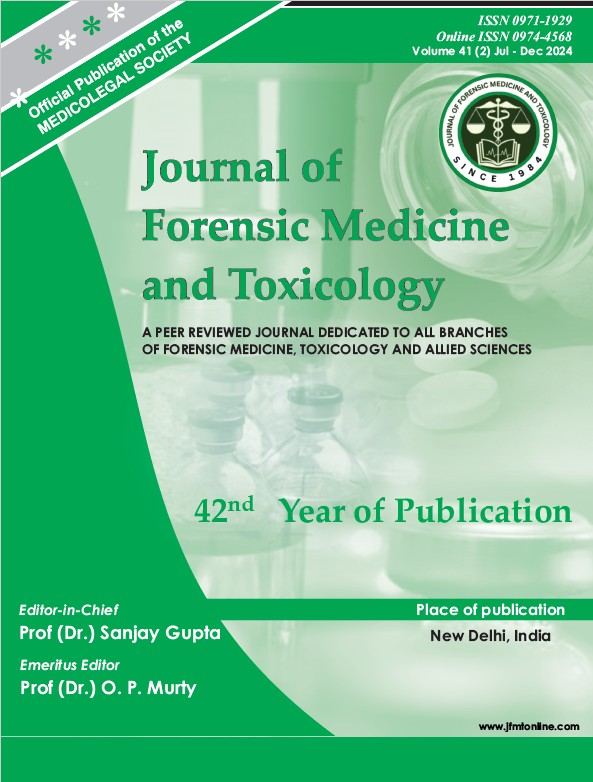Direct Observation of Procedural Skills (DOPS) in Forensic Learning: Usefulness, Disadvantages, Challenges, and Implementation Process
DOI:
https://doi.org/10.48165/jfmt.2025.42.2.17Keywords:
Direct Observation Procedural Skills, Forensic, Learning, Medical EducationAbstract
Direct Observation of Procedural Skills (DOPS) is an integral tool for workplace-based assessment (WBA) in forensic learning, providing real-time evaluation and feedback on students’ procedural competencies. This article delves into the usefulness, disadvantages, challenges, and implementation process of DOPS within forensic education. It includes practical examples to illustrate the impact of DOPS on enhancing the assessment process and preparing students for professional practice.
Downloads
References
Erfani Khanghahi, M., & Ebadi Fard Azar, F. (2018). Direct observation of procedural skills (DOPS) evaluation method: Systematic review of evidence. Medical Journal of the Islamic Republic of Iran, 32, 45. https://doi.org/10.14196/mjiri.32.45
Norcini, J. J., & Burch, V. (2007). Workplace-based assessment as an educational tool: AMEE Guide No. 31. Medical Teacher, 29(9), 855–871.
Weller, J. M., Nestel, D., Marshall, S. D., Brooks, P. M., & Conn, J. J. (2012). Simulation in clinical teaching and learning. Medical Journal of Australia, 196(9), 594.
Kogan, J. R., Holmboe, E. S., & Hauer, K. E. (2009). Tools for direct observation and assessment of clinical skills of medical trainees: A systematic review. JAMA, 302(12), 1316–1326.
Pelgrim, E. A., Kramer, A. W., Mokkink, H. G., & van der Vleuten, C. P. (2013). The process of feedback in workplace-based assessment: Organisation, delivery, continuity. Medical Education, 47(7), 734–742.
Singh, T., & Modi, J. N. (2013). Workplace-based assessment: A step to promote competency-based postgraduate training. Indian Pediatrics, 50(6), 553–559.
General Medical Council (GMC). (n.d.). Guidance on workplace-based assessment and DOPS frameworks. UK: General Medical Council. Retrieved from https://www.gmc-uk.org




